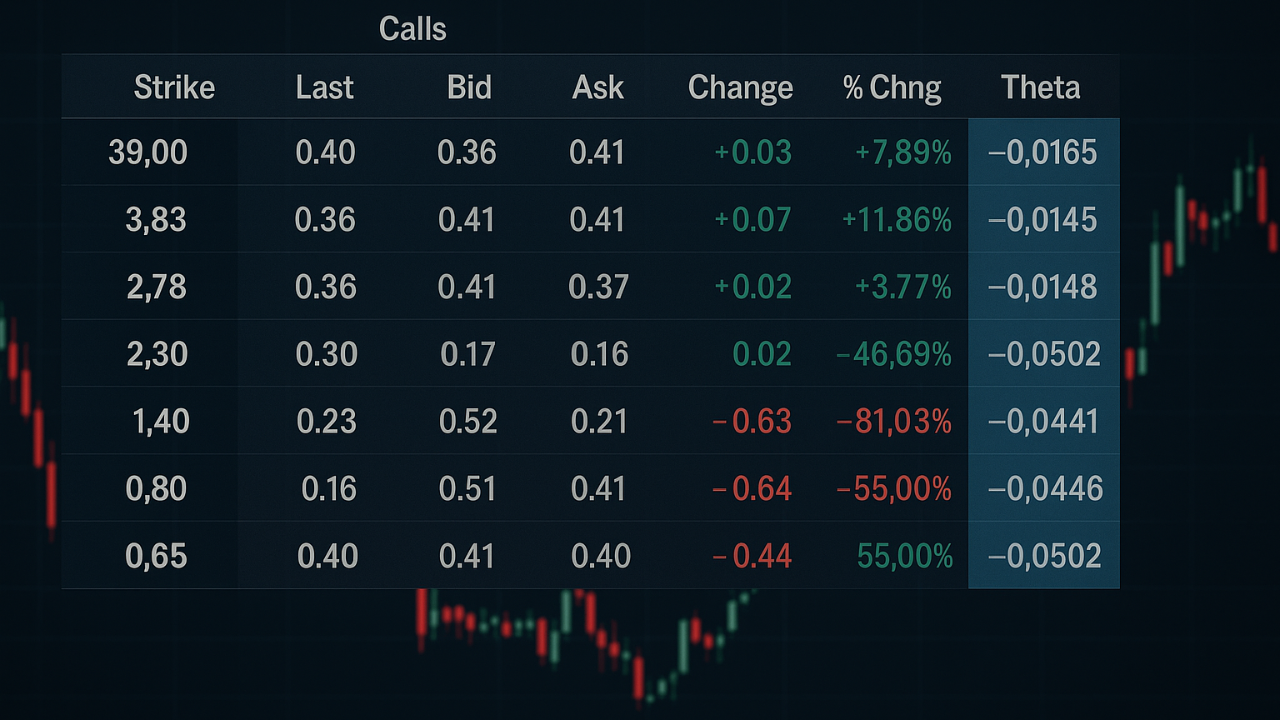Options Time Decay Explained

"Too much time on my hands?
It's ticking away with my sanity.
I've got too much time on my hands.
It's hard to believe such a calamity.
I've got too much time on my hands."
- Styx, "Too Much Time on My Hands"
Time has always played a strange role in the markets, especially when you're learning options for the first time. Whether you're exploring new income strategies, refining your investing approach, or finally diving into topics you've put off, one concept quickly becomes unavoidable: time decay.
New options traders often arrive with good instincts and strong motivation. They're looking for more control, better risk management, or smarter ways to generate income from positions they already own. Options can absolutely help with all of that, but only after you understand the basics, and one of the most important fundamentals is options time decay, explained clearly and practically.
Why People Start Exploring Options
As traders move beyond simple stock ownership, they begin asking the right questions:
⚡ Is there a better way to generate income from the shares I already own?
⚡ Can I build trades with more favorable risk-reward profiles?
⚡ What strategies are experienced traders using that I can learn from?
This curiosity almost always leads to the foundational strategies: covered calls and cash-secured puts. These give beginners a structured way to learn how options behave, how premiums move, and how emotions shift when time becomes part of the equation.
But once these basics are in place, the next central concept every trader must understand is time decay.
Options Time Decay Explained: The Force You Can't Ignore
Time decay, or theta, is the steady reduction in an option's value as expiration approaches. Every day that passes erodes a bit of the option's time value, and this process accelerates as you get closer to expiration.
If you're buying options, time decay works against you.
If you're selling options, time decay works in your favor.
Either way, it constantly affects the position, whether you acknowledge it or not.
Not understanding time decay is why many beginners see an apparently "good" trade turn red, or see an option lose value even when the stock hasn't moved. Theta is a silent but powerful force, and once you truly understand how it works, it becomes much easier to build consistent strategies.
An Easy Way to See Time Decay at Work
Here's a simple example that illustrates how differently time affects options.
Trader Vic buys a call option expiring in September. The strike is $40, the stock trades at $38.50, and he pays $6.00 for the contract. He believes the stock will be above $46 at expiration.
Trader Joe buys the same $40 strike, but his option expires next week. He pays only $0.40.
Same stock. Same strike. Two completely different premiums.
Vic's contract is more expensive because he has months for the stock to make a meaningful move. Joe's contract is cheaper because the probability of a big enough move within a week is low. The difference in premium is simply the price of time.
Why Traders Continue to Struggle With Time Decay
Even when traders conceptually understand time decay, they often forget its severity once they're in a live trade. If a position appears profitable early, it's easy to get distracted by the short-term gain and overlook how quickly theta can accelerate as expiration approaches.
A few days pass.
The stock doesn't move enough.
Time decay speeds up.
The on-paper gain evaporates.
This is not a technical mistake, it's a misunderstanding of how powerful time decay becomes in the final 30 days before expiration.
How to Practice Reading Time Decay
Before committing real money, it's wise to model how time decay behaves through simulated trades. Tracking even 15-20 practice trades will help you see how theta affects different expirations, strike distances, and market conditions. You can also use tools like the Options Industry Council's theta simulator:
As you practice, you'll naturally start choosing expirations more thoughtfully. You'll notice that longer-dated options behave more smoothly, you'll avoid overpaying for short-term "lottery ticket" contracts, and you'll understand why many experienced traders prefer to sell time instead of buy it.
Time decay isn't a minor detail in options trading. It is one of the foundational principles behind how contracts are priced. Once you learn how it works and how to plan around it, you'll trade with more clarity, structure, and consistency.
Stay Connected!
Join our mailing list to get notified of all new blog posts, and receive the latest news and updates from our team.

